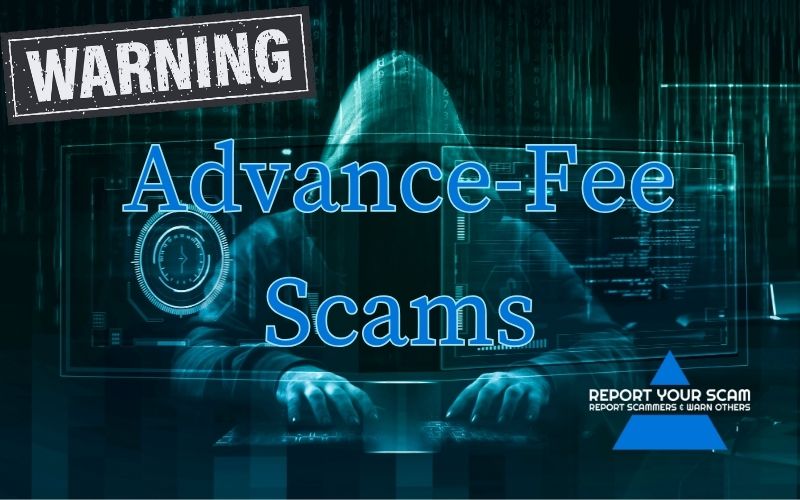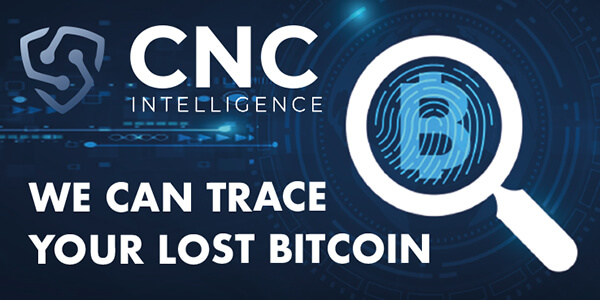Welcome to our comprehensive article about advance-fee scams. Scammers use a variety of tricks, such as the infamous 419 scam and the Nigerian prince scam, to defraud unsuspecting victims. They craft elaborate stories, promising vast sums of unclaimed money or gold bullion to lure in their prey. Email scams are a common tactic where fraudulent emails, filled with fraudulent documents, are sent to potential victims.
In online communications, fake email addresses and social media scams have skyrocketed. Even the FBI has continually warned the public, emphasizing scam prevention and outlining steps for scammer apprehension. It’s not just about recognizing the scam; knowing how to report it is crucial, too.
Our review aims to be a pillar of victim support, arming you with essential knowledge. We delve into various facets, such as lottery scams, money transfer fraud, and other confidence tricks in these deceitful practices. Key transactions in these scams often involve well-known services like Western Union and MoneyGram due to their wide usage and immediate wire transfer capabilities.
We will also shed light on more sinister tactics, like creating false documents and leveraging internet café scams, illustrating the dark underworld of this international crime network. You will learn about different scam flavors – from the Spanish Prisoner to the mysterious black money scam.
Every part of this review is designed to bolster your financial safety. We aim to enhance your scam recognition skills, ensuring you can discern between genuine opportunities and deceptive traps. Remember, knowledge is the first line of defense. So, let’s dive deep, uncover these fraudulent plots, and empower you to navigate the online world safely and confidently.

Understanding Advance-Fee Scams
Advance-fee scams operate on deceit. They dangle attractive offers, like a huge lottery win, a hefty inheritance, or love from a dating site. But there’s a catch. First, they ask you to pay some fees. These fees might be for taxes, legal costs, or other fake charges. They assure you that you’ll get something of great value after paying. But it’s a lie.
Let’s explore some common forms. In lottery scams, you’re told you’ve won a big prize. But to claim it, they ask for a ‘processing’ fee. In inheritance scams, they say a distant relative left you money. They ask for legal fees to ‘release’ your funds—online dating scams prey on the heart. Someone pretends to be in love with you. Soon, they face a ‘crisis’ and urgently need money. In each case, the scammer’s goal is clear. They want to snatch your money, leaving you with empty promises.
Understanding their tricks is our defense. Knowledge arms us against their lies, helping us to avoid their traps. By learning how these scams work, we can shield ourselves and our hard-earned money from their schemes.
Prevention Strategies
Preventing advance-fee scams begins with recognizing them. Scammers often use exciting offers or urgent messages to trap you. They promise huge rewards or urgent needs. But first, they ask for a payment or personal information.
To defend yourself, here’s what you can do. Be cautious with unsolicited emails or messages. If you didn’t expect it, question it. Next, verify the information. Look for official contact details, not the ones they provide. Call or email to confirm if the offer or request is genuine.
Also, guard your personal and financial information. Scammers craft believable stories to get these details. Please don’t share them unless you’re sure it’s safe. Lastly, take your time. Scammers pressure you to act fast. Slow down and make sure everything checks out before taking action.
By following these tips, you build a wall against scammers. You protect your money and information from their sneaky tactics. Remember, it’s better to be cautious and double-check than fall into a scammer’s trap.
What to Do If Scammed
If you realize you’ve been scammed, act quickly. The first step is to contact your bank or payment service. They can help secure your accounts and prevent further losses. Next, report the scam to the authorities. They might be able to track down the scammer.
Reporting is crucial for another reason, too. It helps warn others about the scam. This way, fewer people will fall for the same tricks. Your report adds to the knowledge about current scam tactics. This information aids authorities in stopping scams more effectively.
Remember, you’re not alone. Many have faced this, and there’s no shame in it. By taking action, you play a part in fighting against scams. You help make the internet a safer place for everyone.
Complaints We Received Regarding Advance-Fee Fraud
A person who reported being scammed for $200 wrote:
William Elizabeth Sharon told me that if I gave her $200.00, I would win the prize money. However, I haven’t received anything. Now, she is asking for an additional $300.00 because the delivery man supposedly ran out of gas. She won’t refund my money; she lied to me.
This situation appears to be a classic example of an advance-fee scam. In these scams, the perpetrator asks for a small “advance” payment, promising a much more significant return. However, the more considerable sum is never delivered, and the scammer often invents additional fees or problems that require even more payment from the victim. Once money is sent to the scammer, recovering is typically challenging.
If you believe you’ve been scammed, it’s crucial to report the incident to your local law enforcement agency and potentially to online platforms where the scam may have originated. Some countries also have dedicated agencies or online portals for reporting such scams.
Please note that scams like these often operate across international borders, making legal action more complicated. Professional services might offer some potential avenues for action. Still, it’s essential to thoroughly vet any organization claiming to assist in recovering lost funds, especially given that there are scams that target previous scam victims with false promises of recovery.
Remember to exercise extreme caution in online dealings, particularly when money is involved. Always research opportunities and individuals before exchanging any funds or personal information.
On September 14, 2023, we received the following complaint:
626-502-9627 – Mark Anderson called me, saying I won $1,800,000.00, but first, I have to go to CVS and get a registration card in the amount of $199.99 and hand it to the representative when they come to my door. Since they were from the New York area, I thought it was real until they asked for money. The phone number is listed above. I hope you catch them. I am on an extremely limited income and do not have money to give away to scammers.
This could be classified as a type of scam commonly known as a “prepaid card scam,” in this case, it involves CVS. In such scams, the victim is typically asked to pay fees or charges using prepaid cards purchased from stores like CVS to claim more money or prizes. Here, the scammer asked the individual to buy a registration card from CVS and hand it over to claim the prize money, which is a red flag.
In this case, the victim is told that they’ve won a substantial prize ($1,800,000.00) but must first purchase a registration card for $199.99 from CVS to claim the prize. Requesting an upfront payment to release the prize is common in advance-fee scams. Always be cautious with such offers that seem too good to be true and require an upfront cost. Legitimate companies or sweepstakes will never ask winners to pay fees upfront to claim prizes or winnings. If someone asks you to make a payment or purchase a prepaid card to claim a prize, it is likely a scam. It’s always best to approach such situations cautiously and verify the caller’s legitimacy and claims.
On October 13, 2023, we received the following complaint from a person who reported being scammed for $5000:
I was looking to rent an apartment and was asked to send a $12500 deposit for the keys, which would be sent to me via UPS. After sending the money, she claimed it wasn’t received. Upon investigating the issue, I discovered that the account was empty.
Another complaint came in on October 20, 2023, from a person who reported being scammed for $1200:
They took my money but never delivered the goods. When I asked for a refund, they refused. Then, they asked for more money to process the refund.
On October 21, 2023, we received the following complaint from a person who reported being scammed for $112:
A “sugar daddy” told me he would give me a significant amount of money if I sent Bitcoin to verify the payment. I did as he said but received no payment. When I asked about the issue, he told me to send more. I refused and asked for a refund, but he only replied, “you need to put your best into this.”
On October 27, 2023, we received the following complaint:
I am writing to seek assistance and report an unfortunate incident that occurred during a recent loan application process. I was contacted by individuals who identified themselves as representatives of “USA Loan,” offering to facilitate a $1000 loan. For the purpose of verifying my bank account, they instructed me to download an application named “Quick Connect.” Trusting their guidance, I proceeded to install the app. Regrettably, upon doing so, I lost control of my phone, and it seems that unauthorized transactions were made, depleting my funds.
This scam manifests as a combination of Advance Fee Fraud and Remote Access Scam. Initially, the scammer, pretending to be a legitimate loan provider, offers the victim a substantial benefit, such as a $ 1,000 loan, setting the stage for Advance Fee Fraud. To make it more believable, they operate under the guise of a known entity, such as “USA Loan,” to enhance their credibility. The victim, lured by the promise of the loan, is then asked to download an app, such as Quick Connect. This act opens the door to the Remote Access Scam, where scammers gain unauthorized access to the victim’s device. Consequently, they can perform unauthorized transactions, access sensitive information, or even wrestle control away from the victim.
November 2023 Complaints
It started with an offer for a love spell and spiritual cleansing. Then, she claimed she could assist me with my bills and promised to give me a substantial amount. All I had to do was send her a small fee. To my dismay, what began as a minor charge soon escalated. She first requested a $25 payment, then $50 for another purpose, claiming her account manager needed the funds for something else to release my money. However, I never received any funds. When I requested a refund, she insisted I send an additional $15. Reluctantly, I complied, but then she came up with another excuse. Now, I want my money back, but she’s locked me out of my Cash App and seized control of my PayPal account.
Next, an unsuspecting individual seeking to navigate the complexities of affiliate marketing was trapped by a cunning scammer who offered to turn a small investment into quick profits, only to be lured into a web of lies and mounting extortionate demands:
I was attempting to learn about affiliate marketing when someone claimed she could manage it for me with a minimal investment of $300.00. After transferring the money, she directed me to a website, stanstore24.com, which only displayed a Bitcoin graph. She explained that this was her method and that she would use my $300 to purchase and advertise products. She assured me that within five days, I could withdraw the profits as indicated on the graph. However, now she is demanding thousands of dollars before I can collect these supposed profits. I have screenshots of her admitting that she did not inform me I would need to pay 10% of the profits in cash before receiving my share. I made it clear to her from the beginning that I did not have more money to invest and that $300 was all I could commit. Yesterday, she stated that her compensation comes from taking 10% of the sales, not my upfront payments.
The next victim was duped into purchasing a card from a self-proclaimed CEO on Telegram, only to find themselves out of pocket when the scammer, paid in Bitcoin, vanished with their website, only to brazenly reappear under a new guise:
I was scammed into paying for a card I ordered from a person claiming to be the CEO on Telegram. The payment was made in Bitcoin. Their website was quickexpressdelivery.com, which they shut down after receiving my last payment. Today, they have resurfaced with a new page.
An individual was lured into a sophisticated cryptocurrency scam, believing they were investing in Keanu Reeves’ Arch Motorcycles and Tesla stock, only to find their digital payments funnel into a void:
I paid with cryptocurrency under the pretense of acquiring shares in Arch Motorcycles, the company associated with Keanu Reeves, using TrustWallet. Additionally, I invested $1500 through Coinbase for what was claimed to be Tesla stock.
Next, an unsuspecting individual was ensnared in a complex scam by a perpetrator impersonating Ivanka Trump on social media, leading to a substantial financial loss under the guise of a lucrative investment opportunity:
I believed I was communicating with Ivanka Trump. She reached out to me on TikTok and then shifted our conversation to WhatsApp, where she sent numerous pictures alongside eloquent and thoughtful messages. She proposed that I join her family’s business by investing $100k, which would be part of a larger $10 million investment, $9 million of which she claimed she would contribute. The $100k I invested was meant to be my share in their real estate business, and I was told I would start receiving funds to build my portfolio. After I transferred $100,000 via Coinbase, she sent me Trump bumper stickers, a Trump mug, and a frozen cake from different companies, which made me suspicious about the legitimacy of her claims. The return address on the card included with these items was “Crike White” at 29804 Jackson Rd, Salisbury, MD 21804. Upon inquiry, she told me her assistant had sent these items because she was otherwise engaged. She also sent photos of herself with Kim Kardashian, claiming that Ms. Kardashian had made millions by investing with the Trump Organization. However, when I searched Google for the images she shared, some—like those of her jet and dog—were found on other sites, but many, including those of her with her family, were not.
A variant of the Advance-Fee Scam is known as the Tax Scam. In this type of scam, the scammer entices the victim to make multiple payments under the pretense of tax liabilities and additional unexpected fees, often with the promise of releasing funds or profits once these taxes or fees are paid.
Here’s an example of a Tax Scam at Smia.top:
I am from India, and an institutional subsidiary account was opened on the smia.top website on September 12. Payments were made through Indian accounts until October 12. On October 26, I was instructed to sell all the holdings and was then informed of a tax liability of 15%, which needed to be paid. After paying ₹2,285,524.80, an additional ₹500,000 was demanded for a so-called tax abnormality, also paid on November 4. Yesterday, I was told via WhatsApp that my bank account had been added as a co-beneficiary and that a 24-hour cooling period was required. However, no money has been credited to my bank account yet.
The mention of the “cooling period” after adding a bank account as a co-beneficiary is another common tactic to delay and create a false sense of security. At the same time, no funds are ever intended to be transferred to the victim.
In a concerning case of advance-fee fraud, the Ragle Sustainable Technology Agency LLC has been implicated in scamming businesses through fraudulent financial service offerings and unfulfilled agreements:
I want to alert you to a potential fraud associated with a company named Ragle Sustainable Technology Agency LLC, which maintains an account at South State Bank in Myrtle Beach, South Carolina. The Managing Member of this company is identified as:
Mr. Nicholas James Ragle
Passport Number: 641102533 (USA)
Phone Number: +1-828-242-5800
Email Address: njragle@gmail.comThe company’s contact information is as follows:
RST Agency, LLC
Phone: 828-242-5800
Fax: 866-337-0109
Skype: ragleagency
Website: raglesustainabletechnology.com
Email: nragle@raglesustainabletechnology.com
Address: 28 Schenck Parkway, Suite 200, Asheville, NC 28803.Ragle Sustainable Technology Agency LLC claims to provide financing services to African clients and others worldwide, including issuing financial instruments such as Letters of Credit and Standby Letters of Credit. In late May 2023, we engaged with the company for such services. We received an offer for a monetized Standby Letter of Credit and entered into a formal agreement with Ragle Sustainable Technology Agency LLC. The company requested a processing fee of $8,000, and we transferred $7,350 to their account at South State Bank using the following details:
Bank Name: SouthState Bank
Bank Address: 2005 Oakheart Rd, Myrtle Beach, SC 29579
SWIFT Code: SSBAUS6S
Routing Number: 063114030
Account Number: 8010001776902
Account Name: Ragle Sustainable Technology Sales Agency
Account Address: 5168 Country Pine Dr, Myrtle Beach, SC 29579.Subsequently, the company provided a Performance Guarantee Memorandum. According to the attached Deed of Agreement Contract, the transaction was supposed to be completed within two weeks to a month. However, it has been nearly five months since we entered into an agreement with Ragle Sustainable Technology Agency LLC. We have now ascertained that we have fallen victim to a fraudulent scheme perpetrated by this entity.
Furthermore, the company appears to be in collusion with an individual in the UK named Brian Livingston, who can be contacted at elementalfix7@gmail.com. We would appreciate it if your team could investigate the connections between these accounts.
The following is a cautionary tale about someone’s encounter with a complex scam initiated through a hacked Facebook friend’s account and involving a supposed government grant program:
Unknowingly, I was misled by a Facebook friend who, I later discovered, had been hacked by an organization called ‘GrantGovt. Organization.’ They advertised a ‘Block Grant’ titled the MHBG (Mental Health Block Grant) Beneficiary Program, promising a better life through funds for starting a business, home payments, and personal expenses. This program was supposedly for the middle working class, disabled, low-income individuals, and seniors. They claimed it was a government grant and I could choose the grant amount, for which I selected $90,000. However, this required an initial fee of $500, followed by a certificate fee of just over $3,000, and a delivery fee of $2,500.
I began this program in March of 2023 and continued paying various fees, including purchasing gift cards, until November 3, 2023. They continually promised delivery of a ‘FedEx delivery cash money box’ containing $250,000, which never arrived. My friend, whose identity was used, claimed to have received her grant without issues, but couldn’t explain why I hadn’t received mine.
This appears to be a well-organized scam from social media. I have photos of all the gift cards and receipts, including a money order sent to an address in Wisconsin, saved on my phone. All communication was done through Facebook Messenger and text messaging. The first contact number I used for this grant was 810-459-8754. Later, I communicated extensively with a supposed government agent named Ramon Smith at 414-465-2472, sending him over $11,000 in gift cards from Apple, eBay, Footlocker, and a $1,000 money order.
They used convincing photos of FedEx trucks, delivery boxes, workers, boardroom members, and social media testimonials to legitimize their scheme. They claimed the certificates were created under the Lottery Act and used a Washington D.C. address. Other names involved were Agent Fred Martins, Regional Director H. Philip Paradise, Jr., and Coordinator Angelina Fugon. The email address they used was governmentgrantmanagement1@gmail.com.
Over eight months, I experienced immense stress, anxiety, and heartache, believing this would improve my life as an entrepreneur. I used credit cards, savings, loans, borrowed money, and even a GoFundMe campaign. I fully trusted them because my friend seemed to vouch for them, not realizing she had been hacked. I lost significant income, including my social security income, on November 3, 2023.
The next complaint was received by one of our partners from a person who reported being scammed for almost $500:
They said I could receive $6000, but first, I had to pay an insurance fee of $150 plus $335 to ensure the state wouldn’t deduct taxes. I want my money back; that’s all I had, and I need it.
Here’s another complaint:
I received a link to ‘Agent Jonathan Holby’ from the Family Support Grant Program Services Innovation Fund. They asked for my name, address, email address, and phone number. After saying I was approved, they provided me with a list of amounts I could receive, including $300,000. All I had to do was pay $3,000, and I would receive the $300,000 via FedEx. When I questioned him about the ability to pay, he said, ‘Madam, you need to pay the clearance and delivery fees upfront before your money can be delivered to you.’ The link is facebook.com/profile.php?id=100077437043088
Dream11 Scams
A man contacted me, promising a higher rank on Dream11 for a payment of ₹499, which I paid. He then demanded ₹415 for a profile update and later ₹1000 to publish the rank. Subsequently, he asked for an additional ₹1000 to confirm the winning. Now, he is requesting more money.
This situation can be classified as a “Multi-stage Advance Fee Scam.”
Psychic Advance-Fee Scams
On November 11, 2023, we received a complaint from a person who reported being scammed for over $750:
It so happened that I met a clairvoyant woman named Grace. I have her phone number and the number of the person she supported. She told me she would arrange for me to receive $6,000, $12,500, and $250,000. I’ve sent money to jamesgatherm@gmail.com through his accomplice Grace. I would buy an Apple, take a picture, and send it to Grace, then she would send it to him.
Advance-Fee Scams: Conclusion
In conclusion, advance-fee scams are widespread and damaging forms of fraud. These schemes often start with an email scam, where the fraudster uses a fake email address. They trap victims with promises of gold bullion, unclaimed money, or a lottery scam prize. The scammer’s tools are fraudulent emails and documents with false promises and deceit.
A keyword in uncovering these scams is “419 scam,” linked to Nigerian prince scams. Don’t be misled by the scammers’ confidence tricks. Their main aim is to shake your financial safety. They seek to gain your trust through manipulative tactics, social media scam approaches, or online communications.
One notable trait of these fraudsters is their use of intricate stories. They might mention an international crime, adding elements like bribery to make their stories seem real. Scammers aim to take control of your bank information, urging you to make irreversible wire transfers through services like Western Union and MoneyGram.
Remember, prevention is your most potent weapon. Knowing how to recognize these scams is essential. Enhance your scam recognition skills by staying informed and cautious. If caught in a scam, reporting is vital. Quick scam reporting can aid in scammer apprehension, providing crucial victim support.
To guard against these deceptive tactics, maintain vigilance. Stay updated about the various faces of these scams, like the Spanish Prisoner scam or black money scam. Arm yourself with information, ensuring that your awareness is your safeguard against falling prey to these malicious schemes. Let’s unite to spread awareness, share knowledge, and encourage open conversations to create a secure online environment.
Complaints We Received on November 2023
If I invested $250.00, I would receive a significant return. She even sent me a statement detailing how much I would get back. After that, she mentioned a bank fee of $311.00 required to release the funds. I was preparing to send it through Cash App, but thank God, I accidentally sent it to a relative instead of her. I kept sending her messages, claiming I was trying to get the money refunded and inquiring if there was still time to complete the transaction. She assured me there was, but again, thank God Cash App processed the refund. As I was ready to notify her, I noticed she had disappeared from Messenger and Facebook. Her name is Jessica Taylor, a black female on Facebook modeling clothing and promoting her business in investment. I have all her texts saved. Someone needs to stop her because she took part of the money from my family, and I want my money back and for her to face legal consequences.
Here’s another example of an advanced-fee scam, in which the fraudster will entice the victim with the promise of a large sum of money, such as a grant:
The individual claims that I am to receive a grant and that the funds will be sent under the name Alexander Scott. However, he is persistently attempting to extract more money from me.
Beware of a new scam circulating on social media involving a person impersonating lottery winner Julie E. Leach and asking for money under the guise of charitable giving:
A Facebook woman claiming to be Julie E. Leach says she’s sending money to people in need. Then, I received a text message with a box displaying my name and address, asking if this is where I live. They request $200 to be sent within 24 hours for a package, allegedly from this woman, to be delivered through air logistics. Following this, I got another text inquiring if it was me, along with a request for $200 to deliver the package.
Bottom Line
Awareness and education are powerful tools against advance-fee scams. Knowledge arms us against deceit and helps prevent financial loss. Sharing this article spreads this vital awareness. It helps protect our community and makes everyone safer.
We encourage you to be vigilant. If something seems off, seek advice. When in doubt, it’s better to be cautious. If you’ve fallen victim to a scam, please share your experience. Your story could help others avoid the same pitfalls.
Reporting scams and sharing experiences improve prevention strategies. Together, we can create a more robust defense against scams. We can build a community that stands united against fraud. So, let’s share, learn, and safeguard each other from advance-fee scams.
If you are a victim of advance-fee scams, please let us know by commenting below, and if you have lost a significant amount of money, do not lose hope. We can help you recover your funds!



